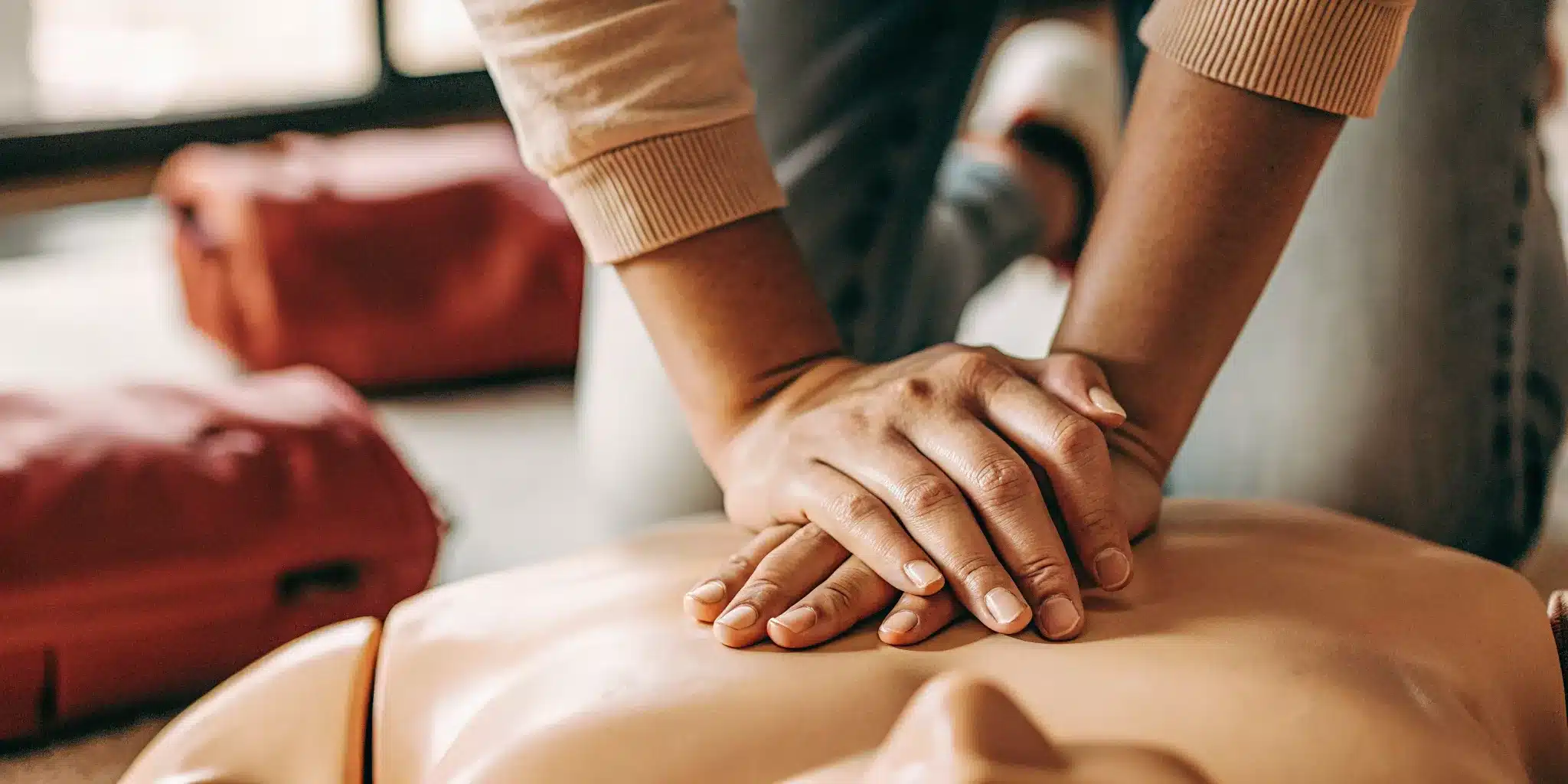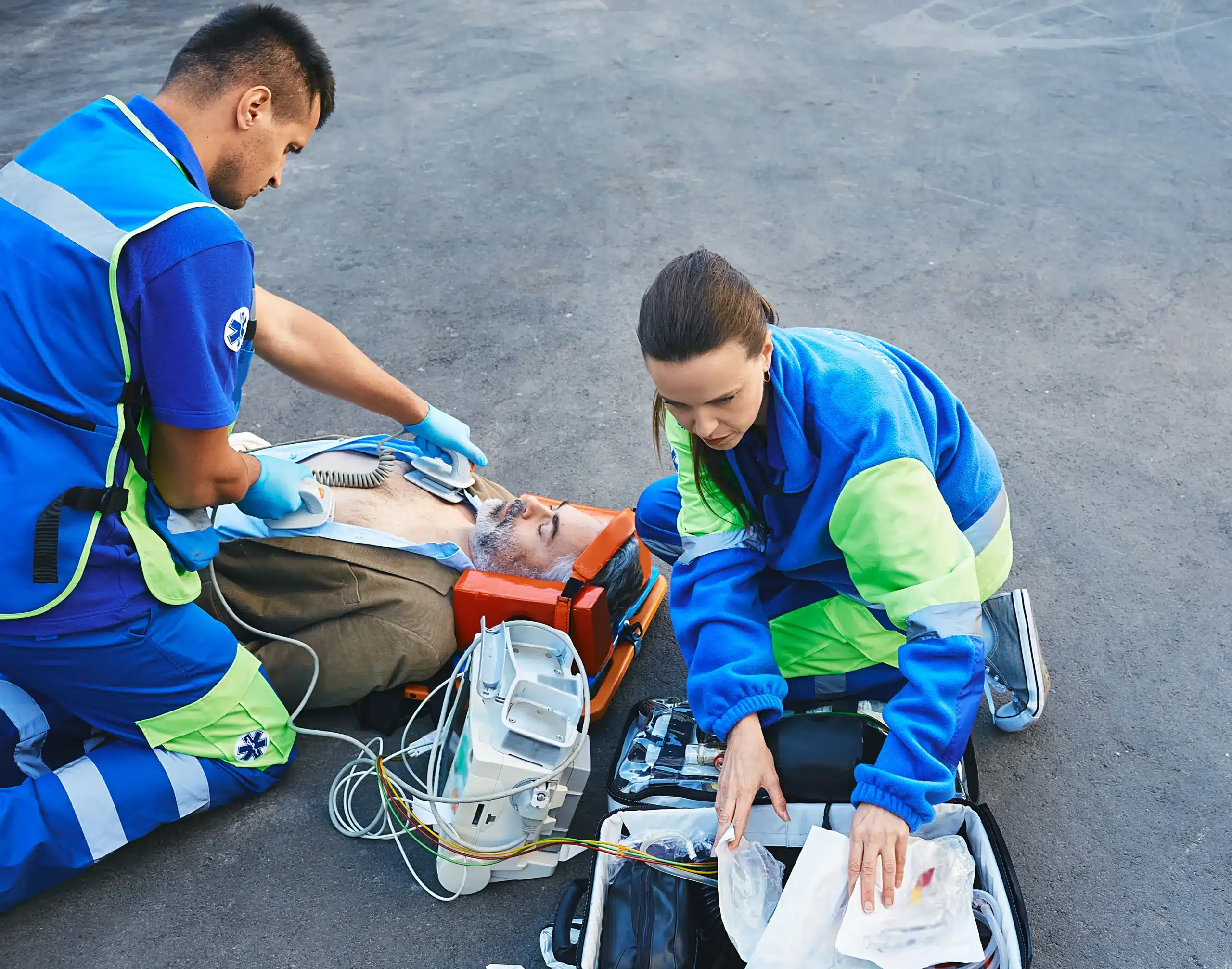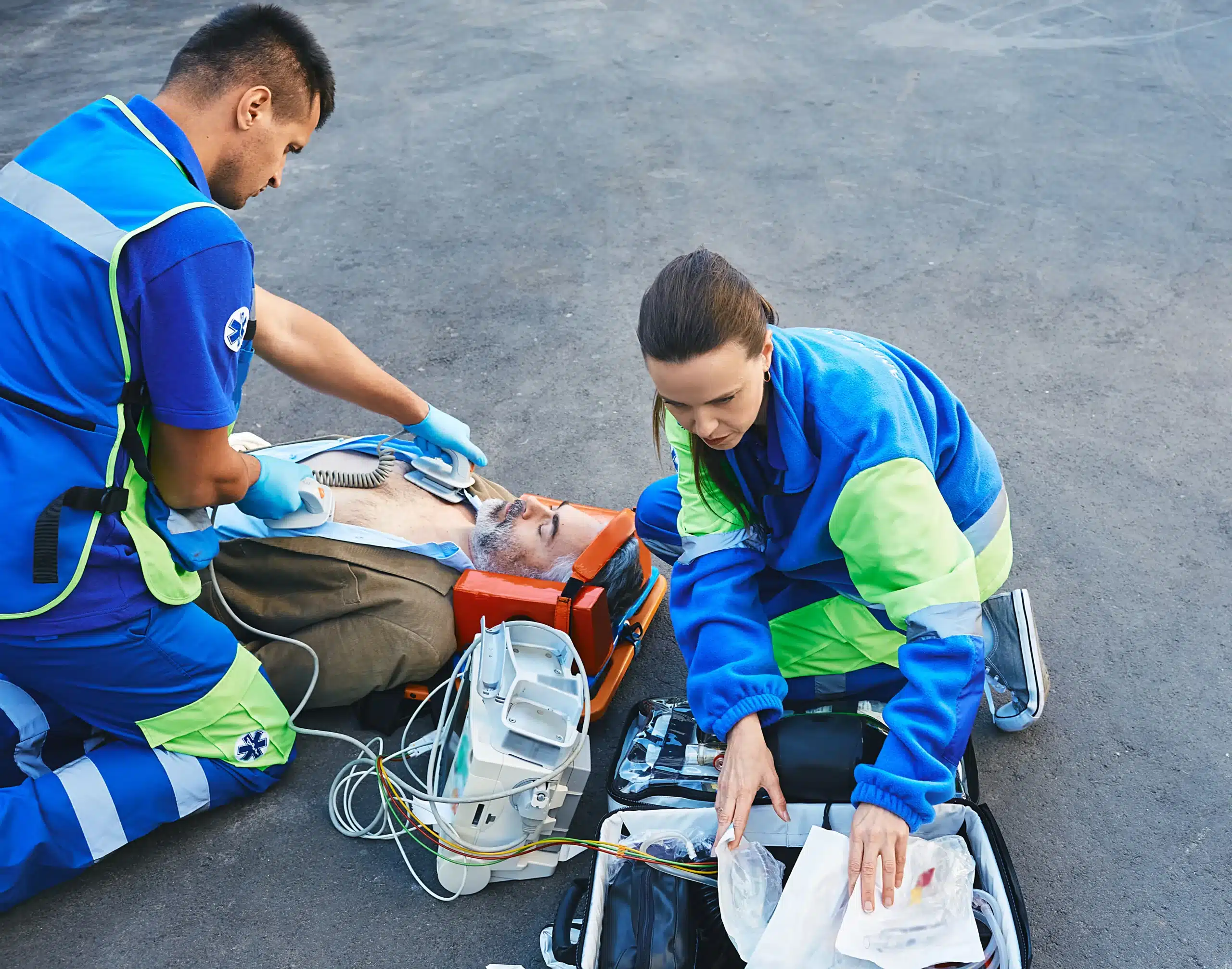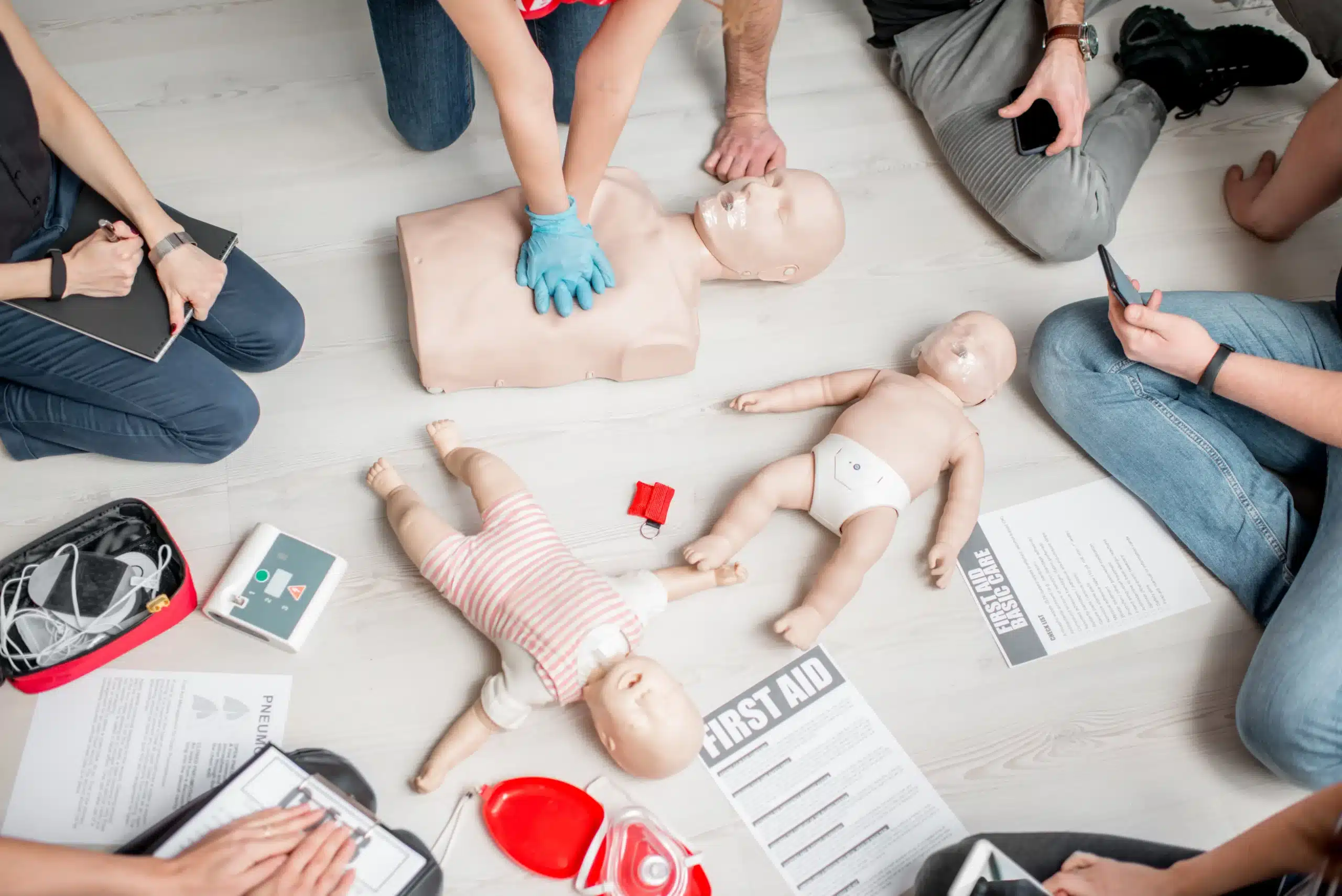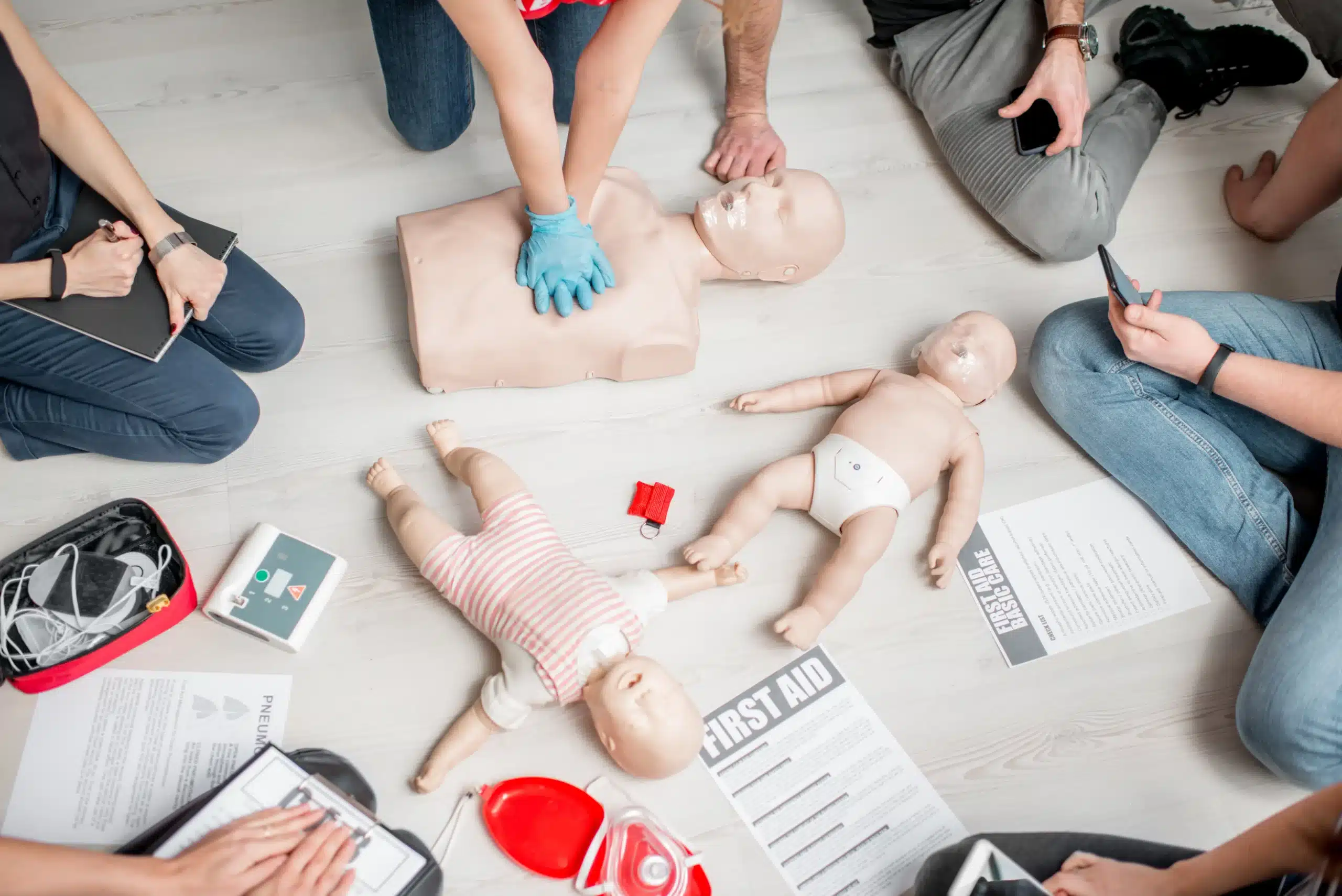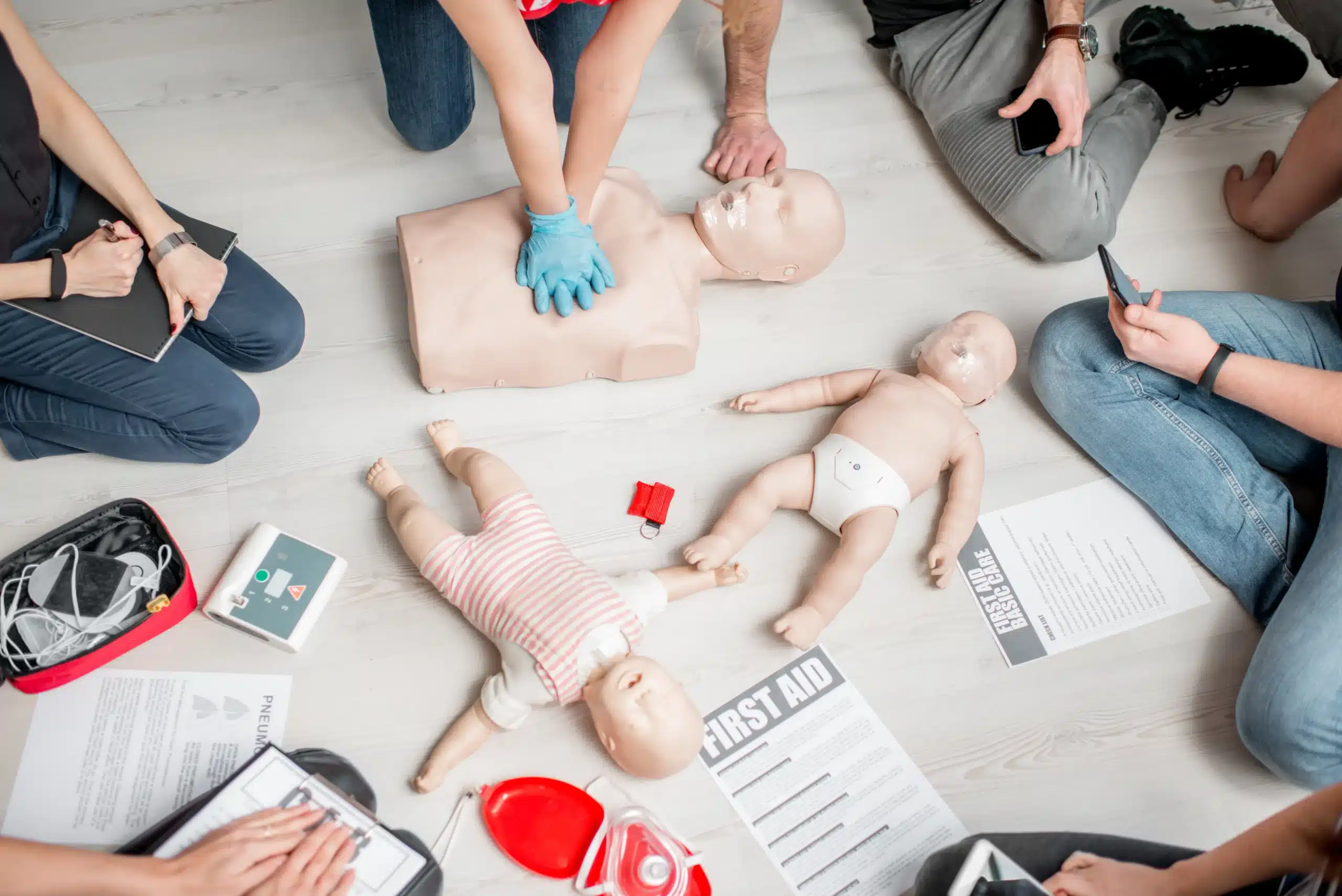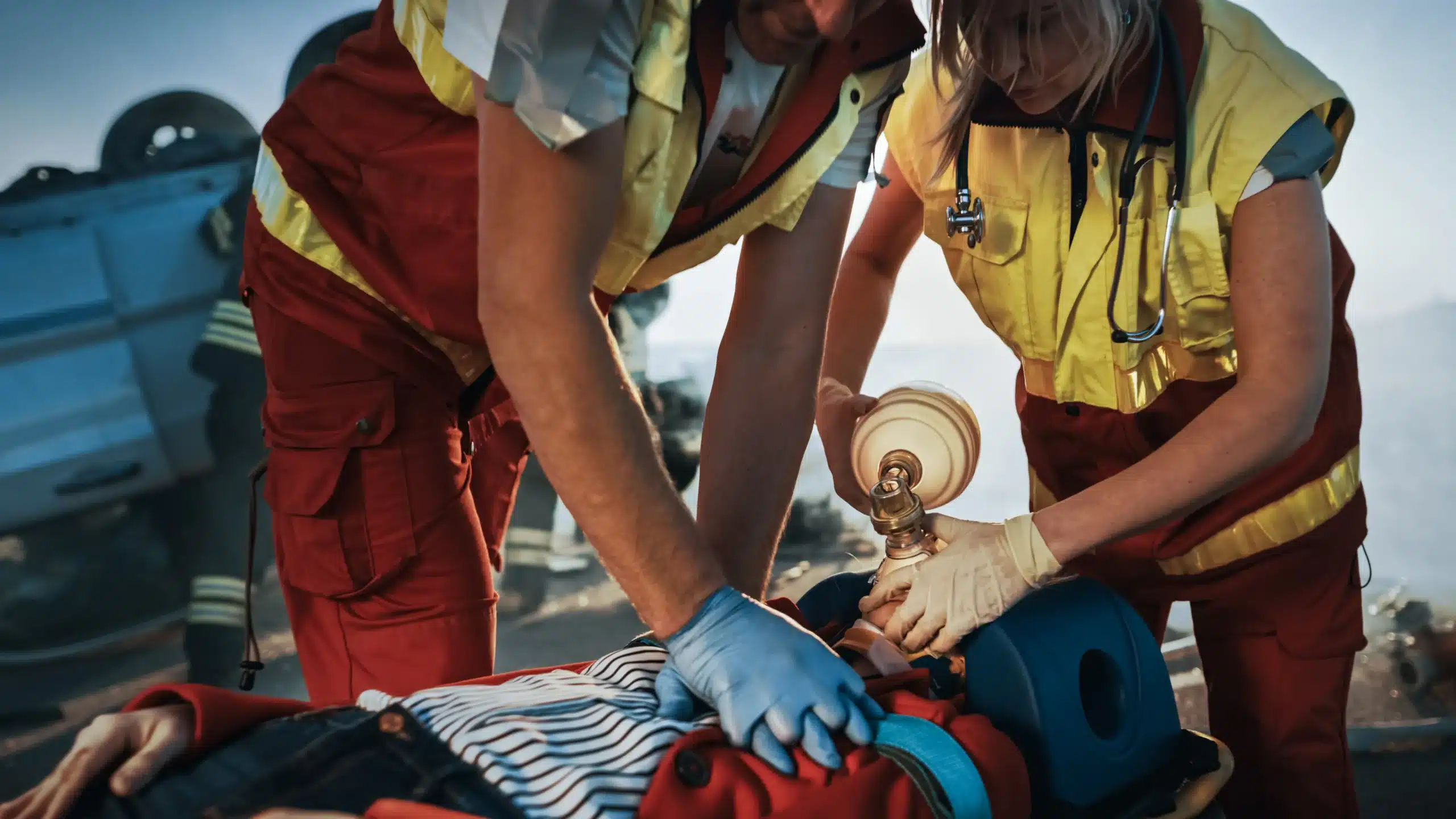Empowering yourself with life-saving skills is one of the most valuable investments you can make. CPR training provides the knowledge and confidence to respond effectively in medical emergencies, potentially making the difference between life and death. This guide focuses on CPR classes in Walnut Creek, offering a comprehensive overview of the training options available to you. Whether you’re a healthcare professional, a childcare provider, or simply someone who wants to be prepared for anything, we’ll help you find the right CPR class in Walnut Creek. We’ll also discuss the importance of CPR, debunk common training myths, and explore what to expect during a typical CPR class.
Key Takeaways
- CPR training empowers you to make a difference: It equips you with the skills to respond confidently in emergencies, increasing the chances of survival for someone experiencing cardiac arrest. Explore the various levels of CPR training available to find the best fit for your needs.
- Walnut Creek offers diverse CPR class options: From basic community courses to advanced certifications for healthcare providers, you can find convenient and affordable training to suit your schedule and goals. Research local providers like Safety Training Seminars to find a class near you.
- Staying current with your CPR certification matters: Regular renewal and continued practice are essential for maintaining proficiency. Explore refresher courses and ongoing training programs to keep your skills sharp and your confidence high.
What is CPR and Why is it Important?
CPR, or cardiopulmonary resuscitation, is a life-saving technique used in emergencies when someone’s breathing or heartbeat has stopped. It combines chest compressions and rescue breaths to maintain blood flow to the brain and other vital organs. Learning CPR empowers you to respond effectively during such critical situations and potentially save a life. CPR is a crucial skill for everyone, not just medical professionals.
How CPR Saves Lives
CPR can truly be the bridge between life and death in an emergency. When someone experiences cardiac arrest, their heart stops pumping blood effectively to vital organs, including the brain. CPR helps maintain a minimal level of blood circulation and oxygen delivery, preventing irreversible brain damage and increasing the chances of survival until professional medical help arrives. The skills learned in a BLS certification course are particularly valuable for healthcare providers, equipping them to respond immediately and confidently in crisis situations.
Debunking CPR Training Myths
Unfortunately, several myths surrounding CPR training can prevent people from learning this essential skill. One common misconception is that CPR is overly complicated and difficult to learn. In reality, CPR techniques are straightforward and can be mastered by anyone willing to learn. Another myth suggests that CPR always revives someone in cardiac arrest. While CPR significantly increases the chance of survival, it’s essential to understand that it doesn’t guarantee resuscitation. Dispelling these and other myths, such as the idea that only medical professionals need CPR training, is crucial to encourage more people to learn CPR and confidently provide assistance when needed. Everyone, from stay-at-home parents to office workers, can benefit from knowing CPR and having the ability to act quickly and effectively in emergencies.
CPR Classes in Walnut Creek: What Are Your Options?
Finding the right CPR class can feel overwhelming with so many choices. This section breaks down the different types of CPR training available in Walnut Creek, so you can choose the best fit for your needs. We offer a variety of courses at our training center, conveniently located to serve Walnut Creek, Concord, and Pleasant Hill.
Basic Life Support (BLS)
The American Heart Association (AHA) BLS CPR course provides the foundational knowledge and skills to respond to life-threatening emergencies. It emphasizes high-quality CPR and the effective use of an Automated External Defibrillator (AED). This class is vital for healthcare providers and anyone interested in learning these lifesaving techniques. Our Walnut Creek location offers BLS certification through the American Heart Association, ensuring your training meets the highest standards. We also offer a low price guarantee, making quality training accessible to everyone.
Advanced Cardiovascular Life Support (ACLS)
Healthcare professionals seeking to expand their expertise can consider the ACLS course. This advanced training focuses on recognizing and managing life-threatening cardiovascular emergencies, including cardiac arrest, stroke, and respiratory failure. ACLS builds upon the fundamentals of BLS CPR and adds advanced airway management, pharmacology, and team dynamics. It’s a crucial certification for those working in critical care settings.
Pediatric Advanced Life Support (PALS)
If you work with infants and children, the PALS course is essential. This specialized training equips healthcare providers with the skills to respond to pediatric emergencies. PALS covers everything from respiratory distress and shock to cardiac arrest in infants and children. The course emphasizes a systematic approach to assessment, treatment, and stabilization. For those specifically working in childcare, we also offer the EMSA Child Care Health & Safety program.
First Aid & CPR
Combining First Aid and CPR training provides a well-rounded approach to emergency preparedness. These courses teach you how to respond to a wide range of situations, from minor injuries like cuts and burns to more serious events requiring CPR. Learning both skill sets empowers you to provide immediate assistance in various emergencies. Many providers in Walnut Creek offer combined First Aid and CPR classes, making it convenient to gain both certifications simultaneously. Consider adding RQI training to further enhance your resuscitation skills and knowledge.
Find the Right CPR Class
Choosing the right CPR class depends on your individual needs and goals. Whether you’re a healthcare provider, work in childcare, or simply want to learn essential life-saving skills, there’s a CPR class in Walnut Creek perfect for you. Let’s explore the options:
For Healthcare Professionals
Healthcare providers face unique challenges in medical emergencies. BLS/CPR certification equips you with the skills to respond effectively in critical situations, ensuring patient safety and the best possible outcomes. These certifications emphasize teamwork and collaboration—essential in a fast-paced medical environment. You’ll find courses designed specifically for healthcare providers, covering everything from basic life support to advanced cardiac life support (ACLS). This specialized training prepares you to confidently manage cardiac emergencies in a medical setting.
For Childcare Providers
Working with children means being prepared for anything, including medical emergencies. AHA BLS CPR classes in Walnut Creek give childcare providers the knowledge and skills to handle emergencies involving infants and children. These courses cover essential techniques tailored to young children, giving you the confidence to act quickly and appropriately in critical moments. The EMSA Child Care Health & Safety course offers further training in preventive health and safety, enhancing your ability to create a safe and healthy environment.
For the Community & Workplace
Learning CPR is invaluable for everyone, regardless of their job. From responding to emergencies at home to assisting a coworker, CPR training empowers you to make a difference. CPR classes are available throughout Walnut Creek and nearby cities, offering flexible options for individuals and groups. Safety Training Seminars provides convenient and affordable training, using innovative programs like the RQI program for efficient and effective learning. Investing in CPR training benefits you and strengthens your community’s emergency response capabilities.
What Happens in a CPR Class?
Wondering what to expect in your CPR class? It’s a blend of learning and practice, designed to give you the confidence to act in an emergency. Let’s break down the typical CPR class experience.
Course Format & Duration
CPR classes in Walnut Creek usually follow a structured format combining classroom instruction with hands-on practice. You’ll learn the latest techniques and guidelines from experienced, certified instructors. Expect a dynamic learning environment with demonstrations, discussions, and opportunities to ask questions. The BLS CPR course typically lasts between four and six hours, allowing ample time to absorb the material and develop your skills.
Hands-on Practice
The most crucial part of any CPR class is the hands-on practice. You’ll work with realistic training mannequins, allowing you to get comfortable with chest compressions, rescue breaths, and other essential techniques. This hands-on training builds muscle memory and helps you understand the correct amount of pressure and rhythm required for effective CPR. This experience bridges the gap between theory and real-world application, preparing you to respond confidently in a crisis.
Certification: Process & Validity
Upon successful completion of your CPR class, you’ll receive an official American Heart Association (AHA) certification card. This nationally recognized certification validates your CPR skills and knowledge. These certifications are typically valid for two years, after which you’ll need a refresher course to stay current and maintain your credentials. This commitment to ongoing training ensures you can always provide high-quality CPR. Investing in CPR training is an investment in your skills and the well-being of your community.
CPR Class Costs & Value in Walnut Creek
Knowing the cost of CPR certification and what you get for your money is a smart starting point. Let’s break down the expenses and the value you receive when you choose CPR training in Walnut Creek.
Course Pricing
Walnut Creek CPR Classes is committed to offering competitive prices for all our courses. We believe that life-saving skills should be accessible to everyone, and we work hard to keep our course fees affordable. We even offer a low price guarantee, ensuring you’re getting the best possible value. Check our website for current pricing on our BLS and ACLS courses.
Materials & Certification Fees
Your course fee covers more than just classroom time. It also includes all the required course materials and your official American Heart Association (AHA) certification card, valid for two years. This nationally recognized certification is often a job requirement for healthcare professionals, adding significant value to your investment.
Group Discounts & Low Price Guarantee
We offer discounts for group and corporate on-site training, making it a cost-effective solution for businesses and organizations in Walnut Creek, Concord, and Pleasant Hill. On-site training offers scheduling flexibility and discounted rates, allowing you to train your entire team conveniently and efficiently.
Long-Term Benefits
The value of CPR training extends far beyond the initial certification. Learning CPR provides a foundation for confident, effective responses in emergencies. For healthcare providers, BLS/CPR certification can improve teamwork and collaboration, leading to a more efficient and safer work environment. The confidence and skills you gain can make a real difference in critical situations. You can learn more about the advantages of BLS training for healthcare professionals from resources like Skill Up Health and ACLS-BLS Louisville.
Meet Your Walnut Creek CPR Instructors
When it comes to learning CPR, the instructor’s qualifications and experience matter. At Safety Training Seminars, we understand this, and we’re proud of our dedicated team. Let’s introduce you to the people who will guide you on your path to becoming a confident lifesaver.
AHA Certification
Our instructors hold certifications from the American Heart Association, the gold standard in CPR and emergency cardiovascular care. This certification means they’ve met stringent requirements and possess the knowledge to teach the most current, evidence-based techniques. You can feel confident knowing your training aligns with the latest guidelines and best practices. This commitment to AHA certification reflects our dedication to providing top-tier CPR education in Walnut Creek.
Experience & Expertise
Beyond their certifications, our instructors bring a wealth of real-world experience to the classroom. Many are current or former firefighters, EMTs, paramedics, and other seasoned emergency personnel. They’ve handled real emergencies and understand how CPR techniques apply in real-life situations. This firsthand experience translates into engaging, relevant instruction that goes beyond the textbook. They can address your questions, share real-world scenarios, and offer the insights you need to feel prepared for any emergency. Learn more about our team and their experience.
Register & Prepare for Your CPR Class
Ready to learn CPR? Our classes are offered daily, making it easy to fit this life-saving training into your busy schedule. We also have a fast and simple registration process.
Registration: Online & In-Person
Signing up is straightforward. Visit our website to view the course calendar and register online. Prefer to register in person? Give us a call, and our team will help you.
What to Bring
For your CPR class, wear comfortable clothing. You’ll be actively participating, so you’ll want to move freely. In these hands-on classes, you’ll practice on a CPR training mannequin to learn exactly where and how hard to press for effective chest compressions. We provide all the equipment, so you don’t need to bring anything other than yourself and a willingness to learn. Note-taking materials might be helpful if you like to jot down key points.
Pre-Course Materials
While pre-course study isn’t mandatory for every class, reviewing the basics can enhance your learning. For some courses, like those designed for healthcare providers, pre-course materials may be available. These specialized courses cater to the unique needs of managing cardiac emergencies in medical settings. Check our website or contact us to see if your chosen course has recommended pre-course reading or online resources. We’re here to support you.
Keep Your CPR Certification Current
CPR isn’t a learn-it-and-forget-it skill. Staying current with your certification ensures you’re prepared to provide effective, life-saving assistance in an emergency. Regular renewal and continuing education help maintain your skills and keep you up-to-date on the latest CPR guidelines.
Renewal Requirements
Your BLS/CPR certification is an important credential, especially in healthcare. It demonstrates your commitment to patient safety and high-quality care. Whether you’re starting your career or aiming for advancement, maintaining a current BLS/CPR certification can significantly impact your professional goals. Generally, CPR certifications are valid for two years. Check your card for the exact expiration date and make a note to recertify before it lapses. Recertification involves completing a renewal course that covers core CPR skills and any updated guidelines from organizations like the American Heart Association. Staying certified not only meets requirements but also ensures you can confidently respond to emergencies.
Continuing Education & Refreshers
Even with a valid certification, regular practice is essential for maintaining proficiency in CPR. Think of it like any other skill: consistent use keeps it sharp, while neglect leads to decline. Hands-on practice with manikins allows healthcare professionals to maintain their competency and avoid skill decline. Consider refresher courses or workshops to reinforce your training and stay familiar with the latest techniques. These opportunities offer valuable hands-on practice and keep your skills fresh. Regular training builds confidence and reinforces best practices, ensuring you’re always ready to provide effective assistance when it matters most. Many providers, like Safety Training Seminars, offer the RQI program for convenient quarterly training designed to support high-quality CPR skills. This type of ongoing education gives healthcare providers the knowledge and confidence to respond with life-saving patient care. BLS training offers numerous benefits to healthcare professionals, including enhanced life-saving skills, increased confidence, improved teamwork, and compliance with regulatory requirements. Investing in your skills through continuing education ensures you can deliver the best possible care in critical situations.
CPR Training Providers in Walnut Creek
Finding the right CPR training provider is an important first step. Here’s a look at some of the options available in Walnut Creek:
Safety Training Seminars
Safety Training Seminars is a woman-owned American Heart Association (AHA) Training Center offering various AHA courses, including BLS, ACLS, PALS, CPR, and First Aid. With classes offered every day of the week, they prioritize convenience and flexibility for students in Walnut Creek and the surrounding areas.
CPR Training Center
The CPR Training Center in Walnut Creek has been providing AHA-certified CPR and advanced life support training for nearly three decades. They focus on healthcare professionals, offering courses like BLS, ACLS, and PALS. This long-standing presence in the community speaks to their experience in the field. You can find more information about their CPR Training in Walnut Creek.
CPR Education
CPR Education provides a range of CPR classes and training programs in Walnut Creek and nearby cities. They offer CPR/AED and first aid training, including recertification courses, conveniently located near Treat Boulevard and the Contra Costa Centre. Check out their CPR classes in Walnut Creek.
American Red Cross
The American Red Cross is a nationally recognized organization offering CPR and first aid training. While they may not have a dedicated training center in Walnut Creek, they often hold classes in the wider Bay Area. It’s best to check their website or contact your local chapter for the most current information on available classes in your area.
Walnut Creek CPR Classes
Walnut Creek CPR Classes offers a comprehensive selection of courses, including CPR, BLS, ACLS, PALS, and First Aid. They focus on making the process as easy as possible, with daily classes and a simple registration system. Their commitment to providing convenient and accessible training makes them a valuable resource for the community. Learn more about their CPR class offerings.
Community Impact & Resources
Learning CPR is a valuable skill, but its impact goes far beyond individual knowledge. It creates a ripple effect, strengthening our community and making Walnut Creek a safer place for everyone.
Improve Walnut Creek Survival Rates
One of the most significant benefits of CPR training is its direct link to improved survival rates during cardiac emergencies. When more people know CPR, the likelihood of someone receiving immediate assistance during a critical situation increases dramatically. This rapid response can be the difference between life and death, making CPR training essential for Walnut Creek. Residents trained to confidently administer CPR until professional help arrives significantly improve our community’s emergency response capabilities.
Local Emergency Responders
Walnut Creek is fortunate to have dedicated emergency responders, including the Contra Costa County Fire Protection District, with multiple fire stations throughout the city. Familiarizing yourself with these local resources is crucial for community preparedness. Understanding who to contact and how the emergency response system works empowers residents to act quickly and effectively when every second counts. This awareness complements CPR training, ensuring a coordinated community response to emergencies.
Support & Networking
CPR training fosters a sense of community and shared responsibility. It creates a network of trained individuals ready to support each other during emergencies. The confidence gained through BLS training empowers individuals to take action and provide assistance, building a stronger, more prepared community. Ongoing training and refresher courses, like those offered at Safety Training Seminars, reinforce these skills and maintain a culture of readiness. This commitment creates a supportive environment where residents feel equipped and confident in their ability to respond to emergencies.
Related Articles
- Why CPR is Important in Healthcare – Walnut Creek CPR Classes
- Debunking Common CPR Myths for Better Emergency Response
- Why Workplace CPR and First-Aid Training Is Crucial
- CPR & First-aid Classes in Walnut Creek, CA – Walnut Creek CPR Classes
- Northern CA CPR Directory – Walnut Creek CPR Classes
Frequently Asked Questions
What’s the difference between BLS and ACLS?
BLS (Basic Life Support) teaches the fundamentals of CPR, AED use, and basic airway management. It’s suitable for anyone, including healthcare providers, childcare workers, and the general public. ACLS (Advanced Cardiovascular Life Support) builds upon BLS, delving into more complex situations and advanced techniques for healthcare professionals. It covers topics like ECG interpretation, pharmacology, and team dynamics in managing cardiovascular emergencies.
How long is a CPR certification valid, and how do I renew it?
CPR certifications, such as BLS, are typically valid for two years. To renew, you’ll need to take a recertification course before your current certification expires. This ensures your skills and knowledge are up-to-date with the latest guidelines.
What if I’m nervous about performing CPR in a real emergency?
It’s completely normal to feel apprehensive about using CPR in a real-life situation. That’s why hands-on practice during training is so important. The more you practice, the more confident you’ll become. Remember, any attempt at CPR is better than none, and your efforts can significantly impact someone’s chances of survival.
Are there CPR classes specifically for people working with children?
Yes, absolutely. PALS (Pediatric Advanced Life Support) is designed for healthcare providers who work with infants and children. It focuses on the specific needs and challenges of pediatric emergencies. Additionally, many providers offer CPR courses tailored for childcare providers and educators, covering CPR techniques for infants, children, and adolescents.
Besides CPR, what other emergency preparedness skills are helpful to learn?
Combining CPR training with First Aid certification provides a well-rounded approach to emergency preparedness. First Aid teaches you how to manage injuries like cuts, burns, and fractures, complementing your CPR skills and enabling you to handle a broader range of emergencies. Consider exploring additional training in areas like wilderness first aid or disaster preparedness, depending on your interests and needs.
